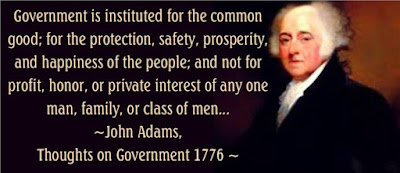by
M.
Richard Maxson
When
the initial battles in the Revolutionary War broke out in April 1775,
few colonists desired complete independence from Great Britain, and
those who did were considered radicals.
However
by
the middle of the following year with
more taxation and British tyranny
many more colonists had come to favor independence. Their
beliefs were
expressed in the bestselling pamphlet “Common Sense,” published
by Thomas Paine in early 1776.
On
June 7th
of that year
the Continental Congress met at the Pennsylvania State House (later
Independence Hall) in Philadelphia, the Virginia delegate Richard
Henry Lee introduced a motion calling for the colonies’
independence. Amid
heated debate, Congress postponed the vote on Lee’s resolution, but
appointed a five-man committee—including Thomas Jefferson of
Virginia, John Adams of Massachusetts, Roger Sherman of Connecticut,
Benjamin Franklin of Pennsylvania and Robert R. Livingston of New
York—to draft a formal statement justifying the break with Great
Britain.
On
July 2nd, the Continental Congress voted in favor of Lee’s
resolution for independence in a near-unanimous vote (the New York
delegation abstained, but

later voted affirmatively). On that day,
John Adams wrote to his wife Abigail that July 2 “will be
celebrated, by succeeding Generations, as the great anniversary
Festival” and that the celebration should include “Pomp and
Parade…Games, Sports, Guns, Bells, Bonfires and Illuminations from
one End of this Continent to the other.” It
wasn’t until
July 4th, the Continental Congress formally adopted the Declaration
of Independence, which had been written largely by Jefferson. Though
the vote for actual independence took place on July 2nd, from then on
the 4th became the day that was celebrated as the birth of American
independence. John Adams did
not agree.
Until
his death he believed
that July 2nd was the correct date on which to celebrate the birth of
American independence, and would reportedly turn down invitations to
appear at July 4th events in protest.
Early
Fourth of July Celebrations
During
the summer of 1776 some colonists celebrated the birth of
independence by holding mock funerals for King George III as a way of
symbolizing the end of the monarchy’s hold on America and the
triumph of liberty.
It was in Philadelphia the first annual commemoration of independence was held on July 4, 1777,
while Congress was still occupied with the ongoing war. Festivities
including concerts, bonfires, parades and the firing of cannons and
muskets usually accompanied the public readings of the Declaration of
Independence.
George
Washington issued double rations of rum to all his soldiers to mark
the anniversary of independence in 1778, and in 1781, several months
before the key American victory at the Battle of Yorktown,
Massachusetts became the first state to make July 4th an official
state holiday.
Two Founding Fathers Reunite
Founding
Fathers, John Adams and Thomas Jefferson, worked together with the
others to forge the successful American Revolution and, subsequently,
as
political rivals, they had helped shape the nation’s early
years. Adams went on to serve a term as the second U.S. president;
Jefferson followed him into the Executive Mansion with two terms. These two Presidents of the United States, were two very
different individuals. They disagreed on many things which led to
their estrangement during the time they were in the White House. In
1812, Abagail Adams and mutual friends brought Adams and Jefferson
together again, at least via mail, but it wasn’t until 1818 that
these two old political rivals began to exchange hundreds of letters
on every conceivable topic.
Prior
to their deaths fourteen years later and now, well into their
retirement years, they resumed writing to each other. “You and I
ought not to die,” Adams wrote Jefferson, “before we have
explained ourselves to each other.” They became good friends, “I
look back with rapture on those golden days when Virginia and
Massachusetts lived and acted together like a band of brothers,”
Adams had written Jefferson in 1825.
The
following year Jefferson had been asked to prepare a speech for July
4th, but ill health prevented him from delivering in person what
became his valedictory. In the draft, he would observe: “May [the
Declaration of Independence] be to the world, what I believe it to
be, the signal of arousing men to burst the chains under which
monkish ignorance and superstition had persuaded them to bind
themselves, and to assume the blessings and security of
self-government.” Adams. too, was asked to celebrate the occasion in Washington, Philadelphia, and New York. Likewise, illness prevented him from traveling.
Both
Adams and Jefferson died on July 4, 1826, the fiftieth anniversary of
the signing of the Declaration of Independence. It was an anniversary
that both founders were determined to live long enough to see. Death
took Jefferson at 12:50 in the afternoon. Near noon, close to the
time of Jefferson's death, Adams awakened from a deep sleep and with
great effort proclaimed, "Thomas Jefferson survives." These
were his last words, after which he fell into a coma. At about six
o'clock in the evening, as the warm day turned cool, John Adams died.
He was ninety-one years old.


No comments:
Post a Comment